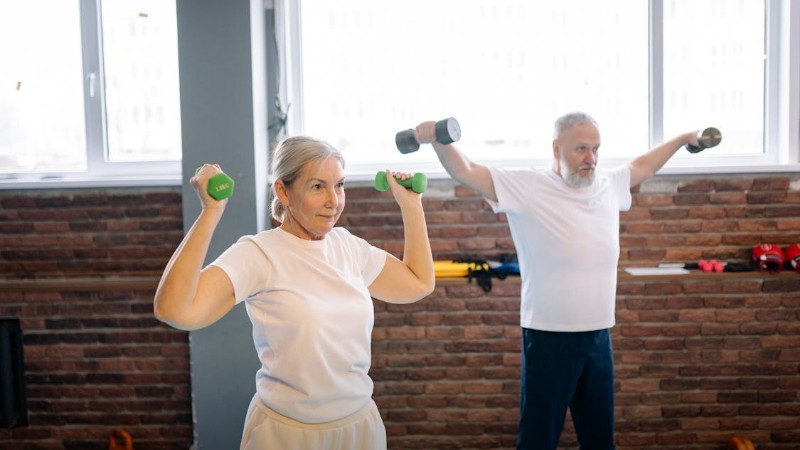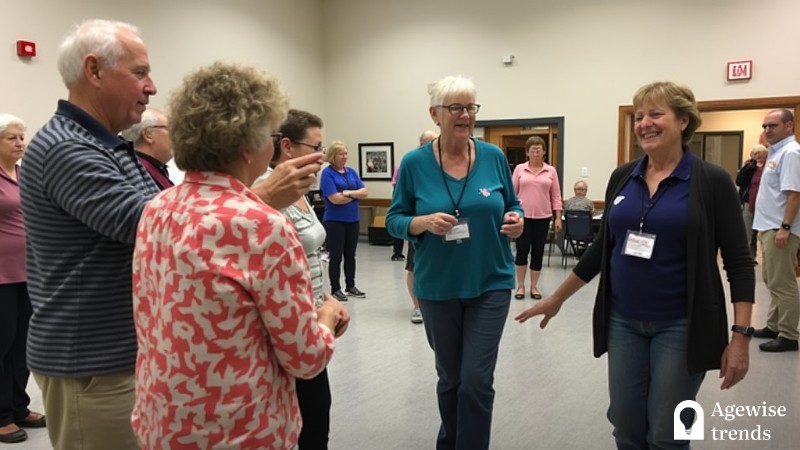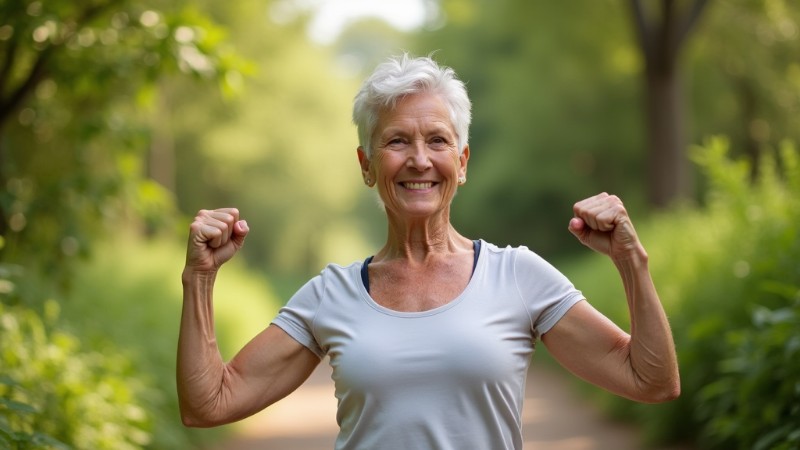As you age, maintaining an active lifestyle becomes increasingly important for overall health and well-being. Staying physically active can help prevent chronic diseases, support heart health, and enhance mental clarity.
However, enhancing physical health involves more than just exercise; it requires a comprehensive approach that addresses various aspects of well-being.
Check out these essential tips to boost your energy and well-being as you age with confidence.
Healthy lifestyle strategies for older adults
For older adults, adopting effective strategies can lead to improved physical health, mental clarity, and emotional balance. Here are a few essential approaches to consider.
Engage in regular exercise
Aim for at least 150 minutes of moderate-intensity aerobic activity or 75 minutes of vigorous-intensity aerobic activity per week. Incorporate strength training exercises into your routine, focusing on exercises that work multiple muscle groups at once. Balance exercises are also crucial for preventing falls and improving overall stability.
High-impact activities like running or jumping can be too stressful on joints, so consider low-impact options like swimming or cycling instead. A physical therapist can also help you design a customized exercise plan that suits your needs and abilities.
Eat, sleep and drink right
A well-balanced diet is fundamental for achieving and sustaining optimal health. Prioritize incorporating a diverse range of fruits, vegetables, whole grains, and lean proteins into daily meals. These nutrient-rich foods provide essential vitamins, minerals, and antioxidants that support bodily functions and promote overall well-being.
Equally important is staying adequately hydrated. Aim to drink at least eight glasses of water each day. Proper hydration helps maintain bodily functions, supports digestion, and aids in the elimination of toxins.
In addition to a balanced diet and hydration, ensure you get sufficient rest each night. Strive for 7-9 hours of quality sleep. Adequate sleep is crucial for physical recovery and mental clarity. It plays a vital role in maintaining a healthy immune system, regulating mood, and enhancing cognitive function.
Maintain connections
Staying connected with friends and family through regular social activities is crucial for mental and emotional well-being. Engaging in meaningful interactions helps combat loneliness and isolation, which can significantly impact overall health.
Consider joining a senior center or participating in community programs. These opportunities not only allow you to meet new people but also encourage active participation in community events and activities. Additionally, participating in group activities, such as hobby classes or volunteer work, can further enhance social connections and provide a sense of purpose and fulfillment.
Schedule regular check-ups
Routine health evaluations play a crucial role in maintaining overall well-being by providing a comprehensive overview of an individual’s health status. These routine evaluations are essential for monitoring chronic conditions such as diabetes, hypertension, or heart disease, ensuring they remain under control and preventing the development of severe complications.
Healthcare professionals use check-ups to monitor vital signs, review medical history, and conduct tests. Early detection of abnormalities enables timely intervention, reducing complications and improving long-term health outcomes.
Stay informed
Staying informed about health topics is essential for maintaining overall well-being, especially as one ages. Keeping up with the latest research and recommendations helps you make better decisions about your health.
Information on common age-related conditions like arthritis is particularly important. Understanding these conditions can facilitate early diagnosis and lead to more effective management, ultimately enhancing quality of life.
Maintaining an active and healthy lifestyle requires a holistic approach that includes physical activity, social engagement, mental stimulation, and self-care.
Through a deliberate focus on integrating physical exercise, social connections, cognitive challenges, and personal well-being into your daily routine, you can significantly reduce the risk of chronic diseases, preserve your autonomy, and improve your overall wellness throughout the aging process.














